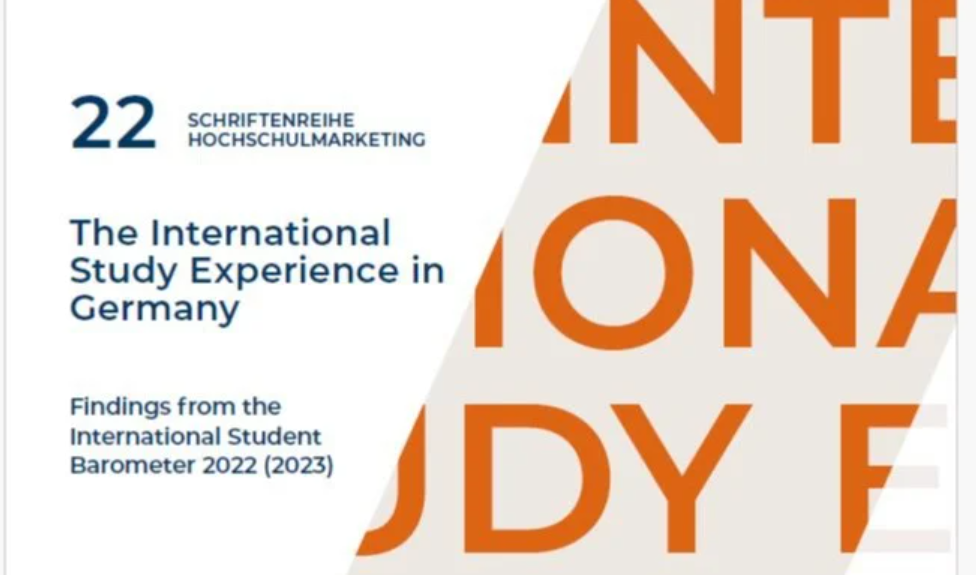
International Student Barometer
Supporting your international education strategy.
Increase your institutions' competitive edge on the global Higher Education stage, and maximise their contribution to the region.
The International Student Barometer is used by governments, national bodies, university networks, and individual institutions around the world to improve the student experience and inform strategies to become more competitive on the global higher education stage.
- Understand the current international student experience, at the national and institution level, and how these compare to national and global benchmarks.
- Inform strategic decision-making for marketing and recruitment initiatives.
- Identify the factors that impact recommendation.
- Gain detailed intelligence about the student experience for your diverse student populations, and what drives students from your target regions to choose your universities.
- Increase the attractiveness of your region as a study destination.
- Evaluate the effectiveness of employability initiatives, at institution level, and national level.
- Ensure TNE operations positively impact the brands of your universities, and that of the region.
ARTICLE: Implementing effective International Education Strategy: Drawing lessons from global best practices.
The Scottish government's comprehensive International Education Strategy is formed to attract more international students and staff, and promote its universities and colleges globally. The strategy seeks to diversify Scotland’s international student population and maximize their contribution to the region. With this being such a common aim for many national bodies in Higher Education, what lessons can Scotland, and other nations with similar ambitions, take from nations that have already embarked on similar international strategies?
Looking at examples from Germany, Estonia, Finland and New Zealand, we explore the common approaches adopted by nations seeking to optimise their internationalisation efforts.
International Student Barometer - the global benchmark for the student experience.
The International Student Barometer provides participating national bodies with independent analysis to evaluate and improve the effectiveness of recruitment channels, and national marketing initiatives, while supporting your member institutions to attract and retain international talent.
As an example, GATE-Germany continues to co-ordinate the International Student Barometer for German universities to provide them with valuable data and analysis to evaluate and specifically improve their attractiveness for international students. Their recent participation saw responses from 8,100 international students from 17 German HEIs.
The latest GATE-Germany report, along with first-hand accounts from those involved in the project, can be accessed below.
REPORT: GATE-Germany's latest report on member institutions' performance compared to national and international benchmarks.
DAAD 's latest report analysing the factors impacting the region's ability to continue to attract (and retain) talented international students while providing a high-quality educational experience. [Download the report below.]

The view from GATE-Germany
Dr. Ursula Maria Egyptien Gad explains why they use the ISB in Germany, and what it means for their universities.
In particular, she discusses the reasons why the DAAD has chosen to support the International Student Barometer and how they use its data, how ISB results help German universities learn from case studies from participating universities, and the way the ISB's international scope allows DAAD to react to global trends.
Find out more in the video below.
Peer-to-peer marketing
Fulda University explain how they use ISB findings to support their marketing activities, using student testimonials from international students to help in "raising external awareness of [their] very high satisfaction rate".
Benchmarking student life
Georg-August-Universität Göttingen explain how the ISB results influence their work, giving the university key benchmarks that cover many facets of student life, inside and out of the classroom.
Nurturing diverse populations
Universität Bayreuth explain how the ISB results help the university to work on listening to students' feedback to assist in maintaining and nurturing their growing diverse international student population.
Further insights: Supporting international education strategy
CASE STUDY: Estonia’s shining example of an evidence-informed internationalisation strategy.
"The Strategy for the Internationalisation of Estonian Higher Education has been considered by experts consulted informally for this report as “a classroom example of how things should be done and was indeed very effective”.
- World Bank Group.
Eero Loonurm, Head of International Higher Education Marketing at the Estonian Education and Youth Authority, explains the role played by the International Student Barometer in their approach to internationalisation.
ARTICLE: "Listen to your students globally!” - Addressing the challenges of ensuring quality across TNE provision.
It's important for TNE providers to set the right expectations and KPIs for their overseas delivery, and these are likely to vary from those in their home provision.
Guy Perring, our Asia Director, discusses the inherent challenges of ensuring comparable standards, adapting to diverse regulatory environments, and providing a quality student experience, exploring how such challenges can be addressed in order to deliver high-quality, locally contextualized TNE programs.
INSIGHTS RECORDING: Improving the student experience, satisfaction and recommendation in European institutions.
Representatives from Aalto University, Tampere University and University of Oulu discuss how they have made use of benchmarking data to improve their institutions’ strategic development work as part of the theme of strengthening the international dimension of higher education.
